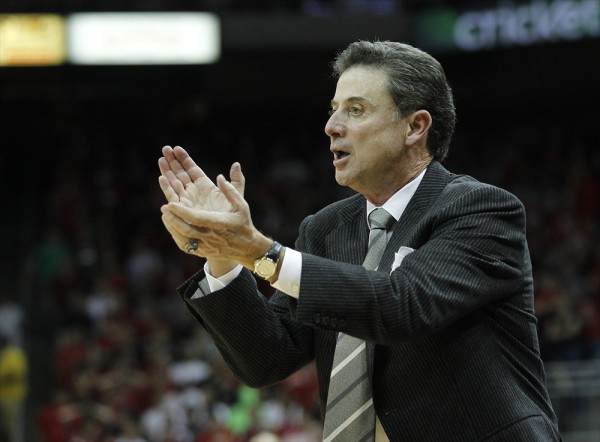Can Rick Pitino Reconcile His Change of Heart on Realignment?
Posted by Will Tucker on November 28th, 2012As has been widely reported and dissected already today, Louisville accepted an invitation to join the ACC in 2014, becoming the seventh school scheduled to depart the Big East in the past year and flanking conference peers UConn and Cincinnati in the process. Although Louisville had already been positioning itself to slide into the vacancy left by Maryland for more than a week, the formal announcement served as a wry rebuttal to yesterday’s additions of Tulane and Eastern Carolina to the Big East. Mike Aresco’s additions enter the macabre pigskin-tossing wing of a league that lacks any semblance of stability –– a ragtag assortment of Conference USA refugees and unwilling holdovers clawing towards the exits (see: Cincinnati, UConn).
For Louisville fans, the news couldn’t have come at a better time. The move triggered a rapturous outpouring from Cardinals fans on social media sites and blogs. The city seemed to breath a palpable sigh of relief, a year removed from UofL’s abortive flirtation with the Big 12 and utterly disillusioned with the league that had lifted its teams out of Conference USA less than a decade ago. The city’s mayor, local columnists, and high-profile former athletes like Darrell Griffith lent their public approval of the move. Some national media pundits applauded the ACC’s decision to invite UofL as somehow more earnest or meritocratic than the cynical motives that had won Maryland and Rutgers their golden realignment tickets. Dick Vitale called it “a slam dunk,” and noted “the Big East in in absolute chaos. It’s a great move for Louisville.”











































